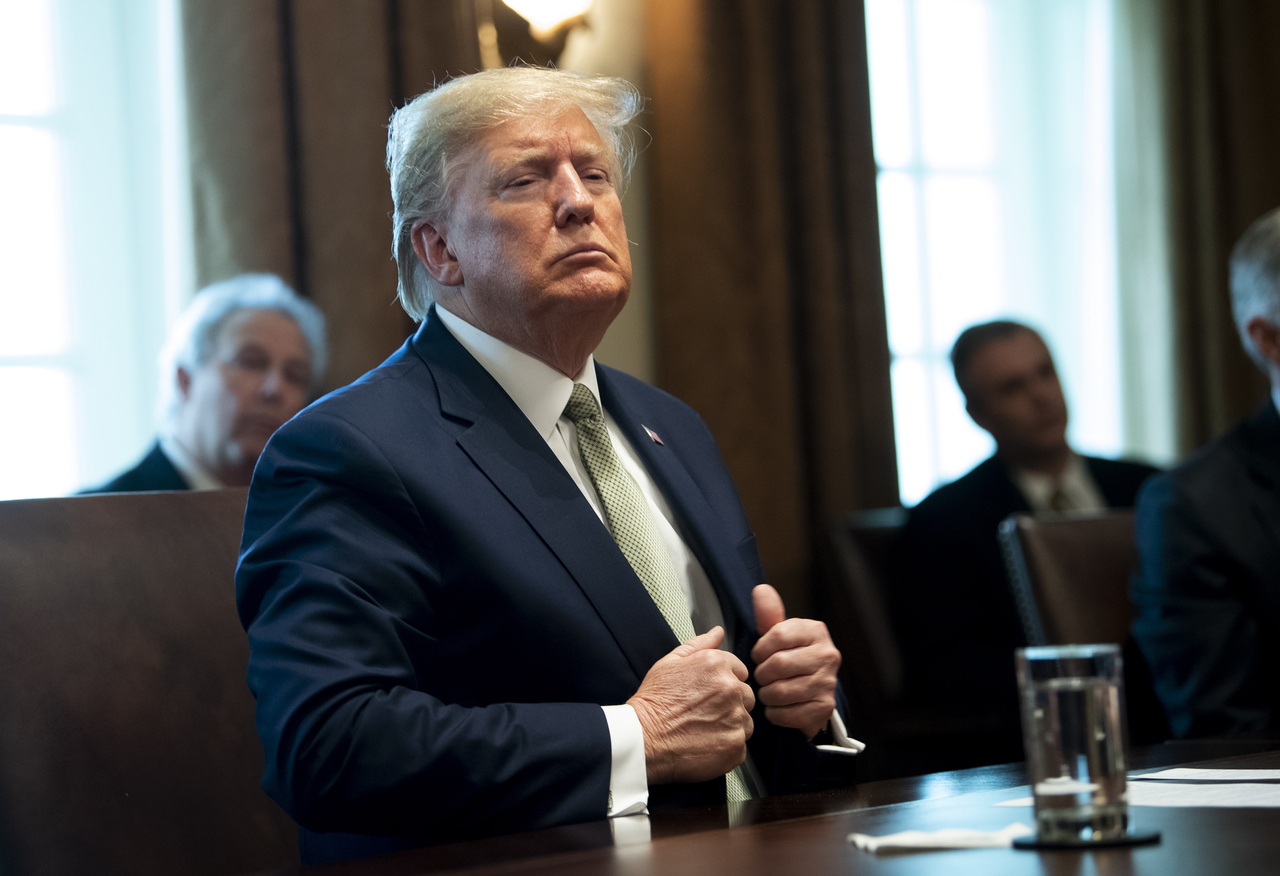Trump now claims he always knew the coronavirus would be a pandemic
Sign up now: Get ST's newsletters delivered to your inbox

President Donald Trump denied that he had changed his mind at all when asked why he had suddenly adopted a sombre and realistic tone about the coronavirus.
PHOTO: EPA-EFE
WASHINGTON (NYTIMES) - For weeks, President Donald Trump has minimised the coronavirus, mocked concern about it and treated the risk from it cavalierly.
On Tuesday (March 17), he took to the White House podium and made a remarkable assertion: He knew it was a pandemic all along.
"This is a pandemic," Mr Trump told reporters. "I felt it was a pandemic long before it was called a pandemic."
This is what Mr Trump has actually said over the past two months:
- On Jan 22, asked by a CNBC reporter whether there were "worries about a pandemic", the President replied: "No, not at all. We have it totally under control. It's one person coming in from China, and we have it under control. It's going to be just fine."
- On Feb 26, at a White House news conference, commenting on the country's first reported cases: "We're going to be pretty soon at only five people. And we could be at just one or two people over the next short period of time. So we've had very good luck."
- On Feb 27, at a White House meeting: "It's going to disappear. One day - it's like a miracle - it will disappear."
- On March 7, seated next to President Jair Bolsonaro of Brazil at Mar-a-Lago, his club in Palm Beach, Florida, when asked if he was concerned that the virus was spreading closer to Washington: "No, I'm not concerned at all. No, I'm not. No, we've done a great job." (At least three members of the Brazilian delegation and one Trump donor at Mar-a-Lago that weekend later tested positive for the virus.)
- On March 16, in the White House briefing room, warning that the outbreak would "wash" away this summer: "So it could be right in that period of time where it, I say, wash - it washes through. Other people don't like that term. But where it washes through."
That comment on Monday was part of Mr Trump's inching toward a more urgent tone in recent days.
But his assertion on Tuesday that he had long seen the pandemic coming was the most abrupt pivot yet from the voluminous number of claims and caustic remarks he has made about the disease.
On Tuesday, Mr Trump spent much of a lengthy news conference praising his administration's response to the pandemic, saying the only mistake his administration made had been a mismanagement of relationships with the news media.
When asked why he had suddenly adopted a sombre and realistic tone about the virus on Tuesday, the President denied that he had changed his mind at all.
"No, I've always viewed it as very serious," Mr Trump said. "There was no difference yesterday from days before. I feel the tone is similar, but some people said it wasn't."
Besides denying the seriousness of the coronavirus over the past two months, he had also displayed a caustic tone toward people who took it more seriously.
During a campaign rally in South Carolina on Feb 28, Mr Trump accused Democrats and the news media of hysteria and unfairly criticising his administration by engaging in what he said was a political "hoax".
His supporters have argued that he was calling Democratic criticism of his administration over the coronavirus a hoax, not the virus itself.
And until recently, he and several of his advisers had privately mocked his health and human services secretary, Mr Alex Azar, as alarmist.
Another theme has been the President offering inaccurate information.
At a campaign rally on Feb 10, Mr Trump suggested that the virus would be gone by April, a claim he has frequently repeated, even though his advisers had warned him that much about the virus was still not known.
As his administration came under intense criticism for a lack of urgency in issuing guidance to Americans or expediting tests for the virus, Mr Trump continued misrepresenting what was available.
"Anybody right now and yesterday, anybody that needs a test gets a test," the President said during a tour March 6 of the Centres for Disease Control and Prevention in Atlanta.
"They're there. They have the tests, and the tests are beautiful."
During that visit, Mr Trump praised his own "natural ability" to grasp scientific theories, and then he likened the quality of the test to a White House recounting of a phone call.
"The transcription was perfect, right?" he asked reporters. "This was not as perfect as that, but pretty good."
While his administration struggled to form a uniform answer about testing, Mr Trump also made misleading claims about whether there would be a vaccine for the virus.
On Feb 29, the President said that a vaccine would be available "very quickly" and "very rapidly", as he praised his administration's actions as "the most aggressive taken by any country".
His statement about how long it would take for a vaccine to be publicly available was corrected by Dr Anthony Fauci, a member of the coronavirus task force, in front of reporters.
This week, Mr Trump announced that a vaccine candidate was entering a clinical trial - only the first phase in a lengthy process to find a cure.


